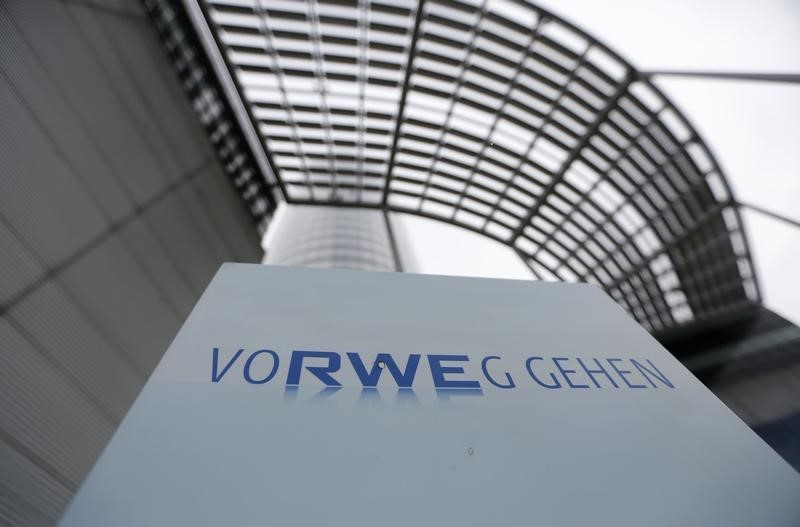By Gernot Heller and Tom Käckenhoff
BERLIN (Reuters) - German utilities RWE (DE:RWEG), Vattenfall (VATN.UL) and Mibrag will start reducing their coal-fired power output at the start of winter 2016, shifting this capacity instead to the country's power reserve as part of a plan to cut carbon emissions, the government said.
Germany in July abandoned plans for a levy on coal-fired power plants and instead said it would pay companies to shift capacity to a coal-fired reserve to safeguard its target to cut emissions by 12.5 million tons by 2020.
Some 2.7 gigawatts (GW) of power generation from brown coal, equivalent to the output of five power plants, will be set aside in case of emergency and then shut down after four years.
"The measure is important for reaching our climate goals and at the same time ensuring that the affected regions don't suffer structural damage," Economy Minister Sigmar Gabriel said.
The lignite-fired units will be taken off grid over the four years 2016-2019 and used only as facilities of last resort. Eventually, the reserve will remove some 13 percent of brown coal capacity from the market.
The IGBCE mining union said eight units with a capacity of 2,700 MW were affected and called for jobs to be preserved.
The three power plant operators will receive an average of 230 million euros (165 million pounds) per year for the shift to divide up among themselves and the move is expected to result in slightly higher electricity bills for consumers.
Opposition Green party lawmaker Oliver Krischer said Gabriel was creating a reserve no-one needed at a great cost.
"This is about paying RWE, Vattenfall and Mibrag billions of euros in bonuses to shut down decrepit plants," he said.
RWE said it would shift about 15 percent of its total lignite capacity of about 10,000 megawatts to the reserve.
"This solution will enable our lignite-fired power plants to make a major contribution to the additional CO2 reduction of 12.5 million tons," RWE Chief Executive Peter Terium said.
"However, it hits the company hard and means a huge burden for our employees," he added in a statement, referring to the eventual loss of some power generation capacity.
RWE said it would shift capacity from two units at Frimmersdorf, in North Rhine-Westphalia, in October 2017, followed by two more at Niederaussem in 2018 and one at Neurath in 2019. After four years, they would all be shut down for good.
Vattenfall, which has total brown coal capacity of 8,000 MW in Germany, said it would move capacity from two 500 MW units in Jaenschwalde in Brandenburg to the reserve in 2018 and 2019.
Campaign group Greenpeace said the German government would need to switch off three times as much to hit its goals to reduce CO2 emissions by 40 percent by 2020 from 1990 levels.
The cabinet is expected to agree the draft law in November before it goes to parliament.
